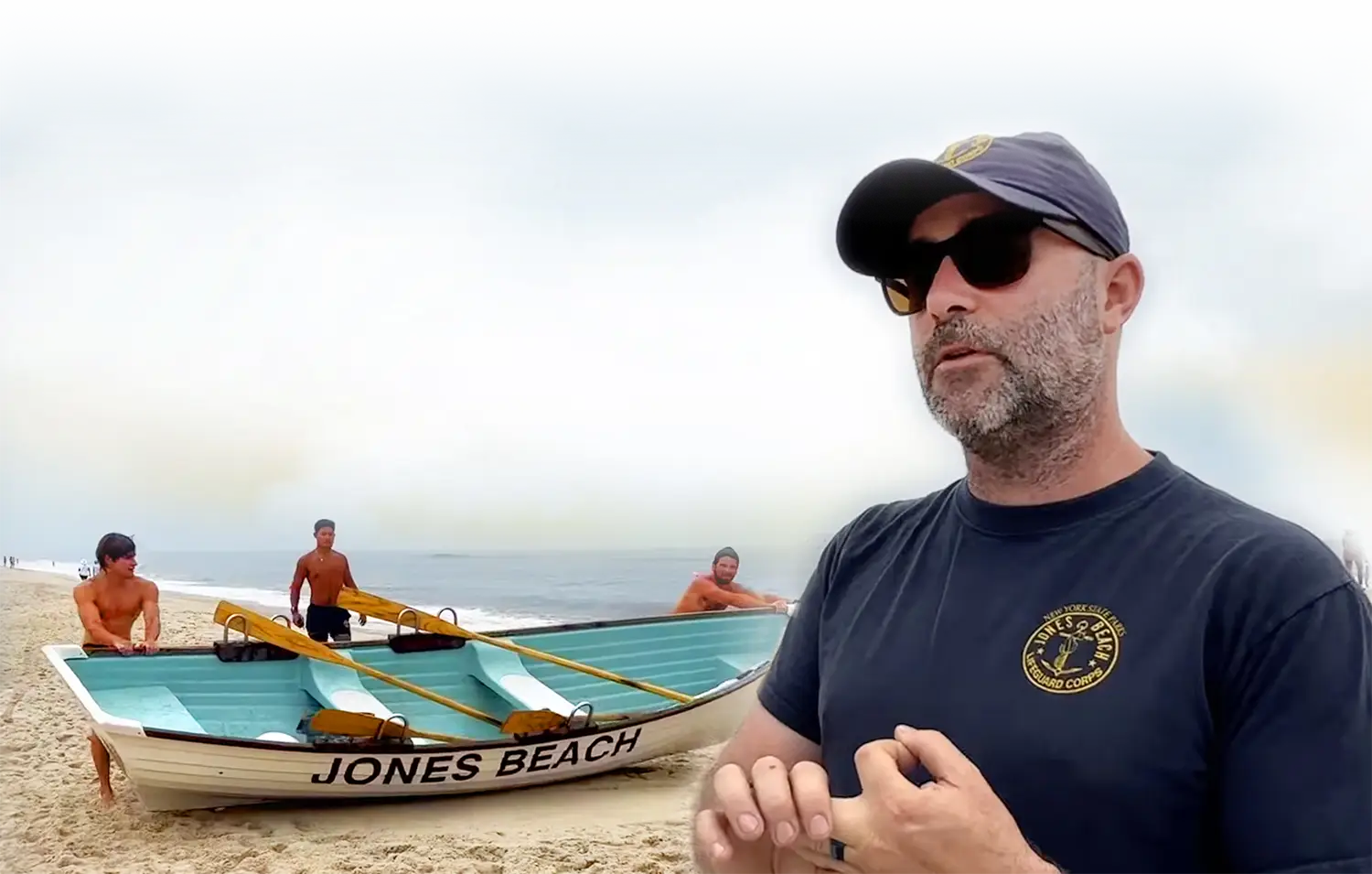Lifeguards push state for first responder status
owerful riptides that pull swimmers out to sea, dangerous predators, and the knowledge that they may have to risk their life at any moment to save another are all parts of the job for an ocean lifeguard.
And yet, Ryan Clark will tell you, “There’s no better summer job.”
During the school year, Clark teaches social studies at Bellmore-Merrick Central High School. But he’s spent every summer for the last 27 years working as a lifeguard.
Now president of the New York State Lifeguard Corps, which represents about 1,200 working lifeguards in the state parks system, Clark estimates he’s made at least 500 rescues since he started lifeguarding at 16 years old. But unlike other heroes who rush into danger to save lives like police, firefighters and EMTs, open water lifeguards are not classified as first responders.
“It just doesn’t make any sense,” Clark said. “If something happens to you in the ocean, we are the first to respond. Just last month two of our union members pulled an unconscious child out of the water and performed CPR before EMTs even arrived on scene.”
Just like first responders, lifeguards go through rigorous training and must pass written tests and physical fitness exams, Clark said. They also must earn CPR, first aid and AED certification. On top of all that, ocean lifeguards learn to respond to emergencies that are specific to a beach like boating accidents or jellyfish stings.
“To work at Jones Beach as a New York state park guard, you then take a separate, advanced training where we teach you how to do board and buoy rescues, spinal and head injury management, and submersion drills in case someone is under the water and hasn’t surfaced,” Clark explained.
They’re also trained to stop the bleed and keep tourniquets in their first aid bags in the event of a shark attack. Last summer, eight people were attacked by sharks on Long Island beaches, including a lifeguard at Smith Point Beach. This year, there have already been at least five reported shark attacks.
“It’s still a very rare situation; however, it is something that’s definitely in the back of our mind whenever we get in the water,” said Mariusz Borkowski, president of the Smith Point Lifeguard Association and a physical education teacher at Bay Shore High School. “We encounter all types of risks on the job, but we don’t get the same respect or benefits as firefighters, paramedics and other first responders.”
Borkowski joins Clark in calling on the state Legislature to grant emergency first responder status to open water lifeguards, which they say will give them access to better health benefits if they get injured on the job, more tools to recruit the next generation amid a lifeguard shortage and greater professional respect.
Additionally, Clark is pushing for increased pay for lifeguards who have EMT certification or are trained in advanced specialties such as jet ski rescues and drone piloting often used for shark patrol.
And in lieu of what Clark says is a significant uptick in verbal threats and harassment from disgruntled beach patrons toward lifeguards, he’s also fighting for stronger workplace violence protections.
When the summer ends, their advocacy will not, and Clark says he’s grateful to have the support of his union in the fight for greater benefits, pay, safety and respect on the job.
“The work NYSUT is doing to raise awareness shows us that our union family values us as professionals,” he said. “We just need the Legislature to pass the laws so we can be treated as such and get the respect and recognition for the hard work we do every day making sure that you can go home from the beach safely.”
Hear the lifeguards share their story at nysut.cc/lifeguards.
